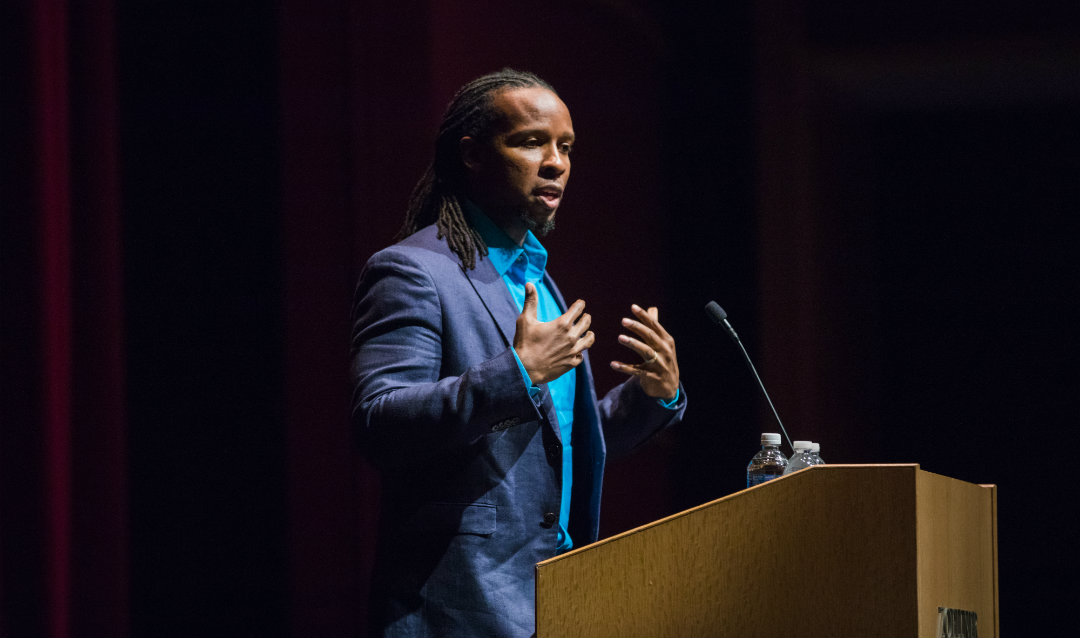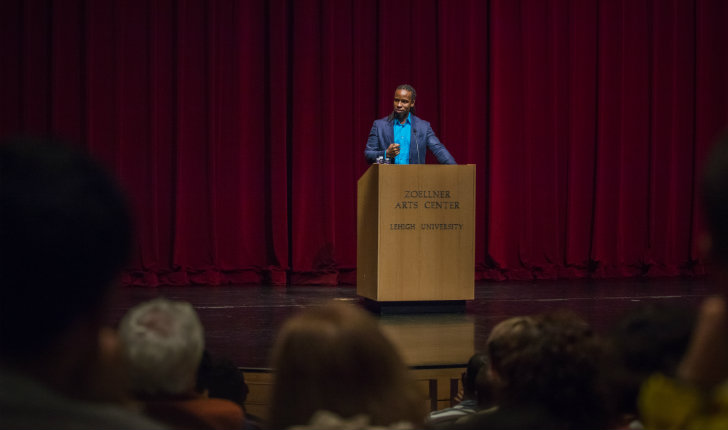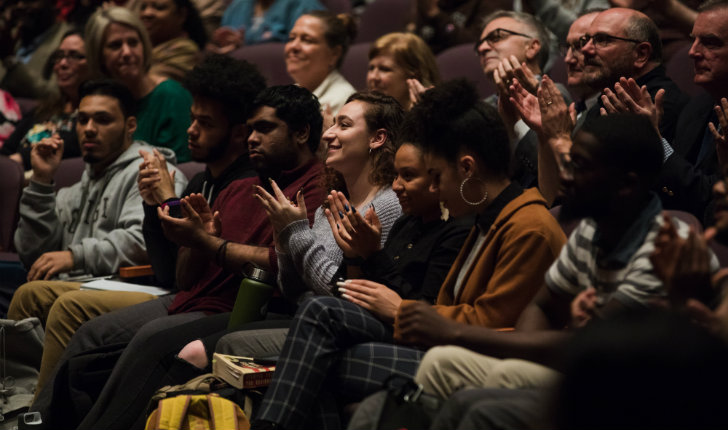For the past few months, historian Ibram X. Kendi has been touring the country, challenging his fellow citizens to rethink their understanding of racism and urging them to become more engaged in combatting the policies that perpetuate it. This week, the man who has been described as “a leading voice among a new generation of American scholars who are reinvestigating and redefining racism” came to Lehigh to share his message with an audience that packed Baker Hall.
The MLK Keynote Lecture was based largely on his deeply personal, well-researched book, How to Be an Antiracist, which outlines a concept that is both stunningly simple and enormously challenging: People are either racist or anti-racist. There is no neutral, well-intentioned middle ground. You are either perpetuating or supporting racism through inaction, or you are actively engaged in fighting it.
Not fully embracing that reality is “how you can have Donald Trump and the leading Democratic candidate for president say, ‘I don’t have a racist bone in my body,’” while racist policies in the criminal justice system, in economics, in housing and even in the Constitutionally-protected right to vote endure.
Kendi compared the use of the term “racist” to the way white supremacist Richard Spencer is described as “alt-right.” “The terms ‘racist’ and ‘alt-right’ are terms that describe what a person is doing. And if they say something like, ‘Black people are immoral,’ in that moment, they are being racist. If they turn around and say, ‘Slavery is immoral,’ they are being anti-racist.”
Describing someone as a racist for what they are doing “in the moment,” he says, “opens the door for people who could possibly change,” even those in their 60s and 70s, who have a far different understanding of racial dynamics. “I define a racist as someone who expresses a racist idea or supports a racist policy with their action or their inaction,” he said.
Ultimately, Kendi said, it comes down to a fundamental question: What side of the struggle are you going to be on?







